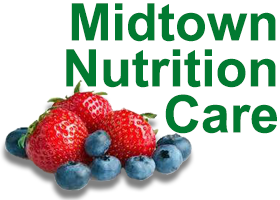FATS IN OUR DIET
Fats occur naturally in foods and are necessary in our diet. Fats are important for many things, including helping our nerves work and delivering nutrients around our body. However, fats are high in calories and too much fat intake can lead to weight gain. Also, some types of fat are unhealthy and can play a role in the development of heart disease. There are four different kinds of fats:
MONOUNSATURATED FATS
Monounsaturated fats are found in plant-based foods and oils, such as nuts, olive oil, and avocados. These are healthy fats and can help lower cholesterol levels and reduce the risk of heart disease.
POLYUNSATURATED FATS
Polyunsaturated fats are also found in plant-based foods and oils. Soybean and corn oils, as well as many seeds, like flax, sesame, and pumpkin seeds, are high in polyunsaturated fats. Omega-3 fatty acids are also part of the polyunsaturated fat group. When used in moderation, polyunsaturated fats can also help reduce the risk of heart disease.
SATURATED FATS
Saturated fats are found primarily in animal products such as meat and butter, as well as some plant oils like coconut and palm oil. Fried foods and greasy baked goods are high in saturated fats. Too much saturated fat in our diet can lead to increased cholesterol levels and heart disease.
TRANS FATS
Trans fats are artificially created from unsaturated fats, and can be found in margarines and many processed foods and snacks. Trans fats are often identified in food labels by the words “partially hydrogenated.” Like saturated fats, trans fats are linked to increased cholesterol levels and heart disease.
INTAKE GUIDELINES
To prevent excess weight gain and reduce disease risk, most people should limit their total daily fat consumption. A good rule is to aim for less than 60 grams of total fat per day. Of these 60 grams, no more than 20 grams should be from saturated fat, and trans fat should be limited to less than 2 grams per day. Keep in mind that some foods that are high in total fat are low in saturated fat, while some are high in both. For example, one tablespoon of butter has 12 grams of total fat, which includes 7 grams of saturated fat. However, one tablespoon of olive oil has 14 grams of fat, but only 2 of those grams are saturated fat. Fat grams and types of fat are listed on the food label, and sometimes listed on the menus of chain restaurants.
